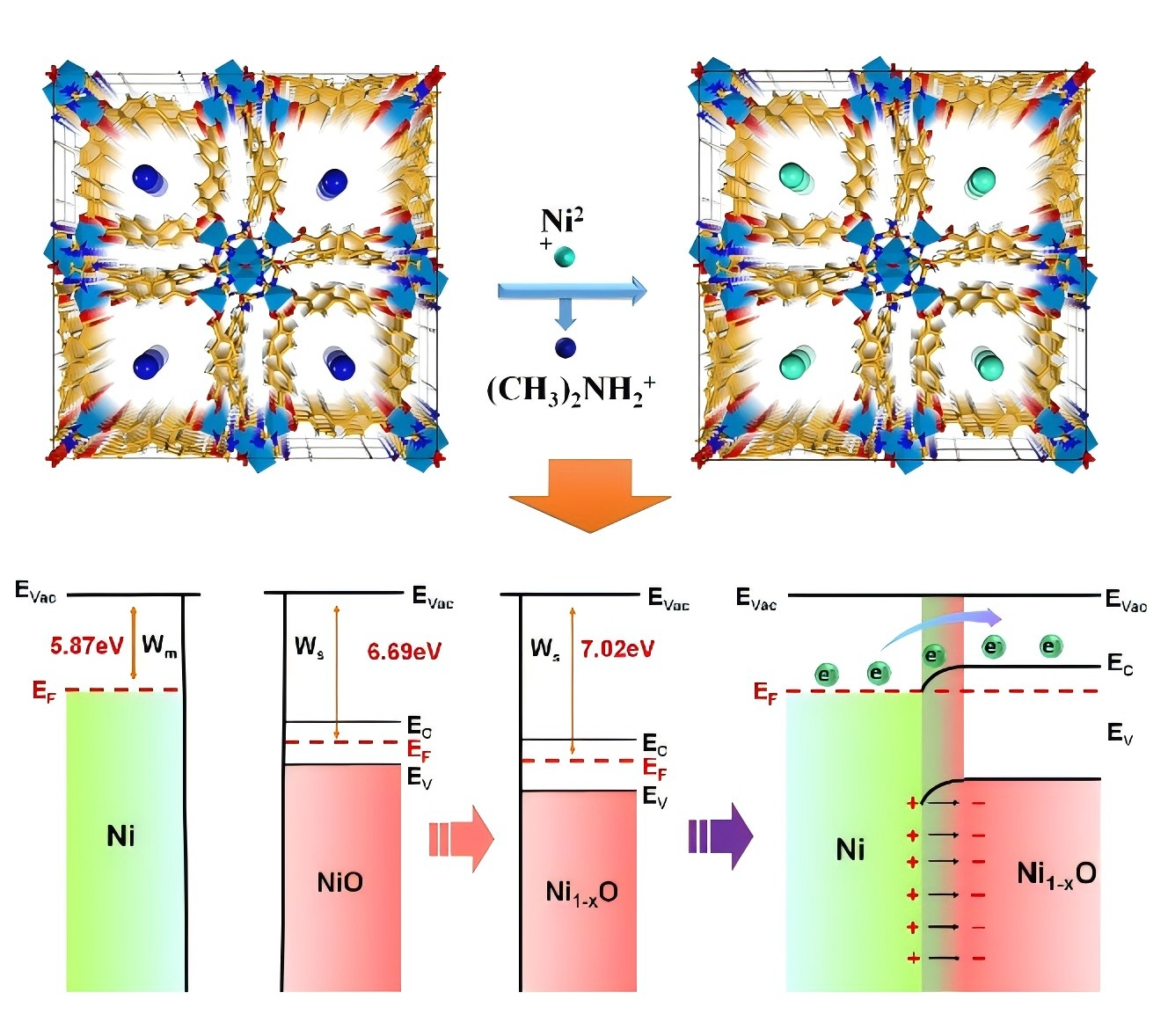Team Led by Professor Fang Shaoming from the College of Material and Chemical Engineering Publishes a Paper in the Internationally Renowned Journal Advanced Energy Materials
|
|
|
|
Updated::
2025-11-08
Clicks:
48
|
|
|

Recently, Professor Fang Shaoming and Associate Professor Xiao Yuanhua from the College of Material and Chemical Engineering, in cooperation with Professor Yu Yan from the University of Science and Technology of China, published a research paper titled "Anionic MOF-Derived Ni/Ni1-xO Heterojunctions with Electrochemically Induced Vacancy Reconstruction: Enabling High-Rate and Stable Room-Temperature Na–S Batteries" (DOI: 10.1002/aenm.202504080)in the internationally renowned journal Advanced Energy Materials (IF = 26.0) in the field of materials. In this paper, Professor Fang Shaoming, Associate Professor Xiao Yuanhua, and Professor Yu Yan are listed as co-corresponding authors, with PhD candidate Fan Yuanyuan from the College of Material and Chemical Engineering as the first author, and Zhengzhou University of Light Industry as the first affiliated institution.The development of next-generation battery technologies is crucial for eco-friendly and sustainable resource development. Owing to their high energy density, abundant raw materials, and low cost, room-temperature sodium-sulfur batteries hold significant potential in advancing the clean energy transition and ensuring energy security. Compared with lithium, sodium is far more abundant and widely distributed in the earth's crust, giving sodium-based batteries a strong competitive advantage in large-scale energy storage. Despite their potential, the commercialization of these batteries remains hindered by critical issues such as the polysulfide shuttle effect, resulting in poor cycling stability and coulombic efficiency. To overcome these challenges, the research team developed an innovative templating strategy for anionic metal-organic frameworks (Bio-MOF-1), successfully synthesizing a composite cathode material with atomically dispersed Ni/NiO heterojunctions embedded in hierarchical porous carbon nanofibers (CNF). In this work, strong ionic anchoring for atomic-level Ni2+ dispersion was integrated with confined pyrolysis to enable controllable phase transformation and construct a heterojunction structure with tightly-bound interfaces. Ex-situ characterization analysis further revealed that the electrochemical activation process induced the formation of Ni2+ vacancies, increased the content of Ni3+, and further modulated the interfacial charges. This dynamic reconstruction optimized the material's ability to adsorb and catalytically convert polysulfides. The optimized S/Ni/Ni1-xO-Bio-MOF-1@CNF cathode material demonstrated exceptional electrochemical performance in room-temperature sodium-sulfur batteries, delivering a reversible capacity up to 1590.1 mAh g-1 at a current density of 0.1 A g-1, and maintaining a high specific capacity of 795.8 mAh g-1 after 1000 cycles at a high current density of 1 A g-1, showing excellent cycling stability.Additionally, the team, in collaboration with Professor Yan Yu from the University of Science and Technology of China, published a research paper titled "Dendrite-Free High-Capacity Alkali Metal Batteries by Two-Dimensional Confinement of Desolvated Ions" (J. Am. Chem. Soc. 2025, 147, 43, 39259–39270) in the Journal of the American Chemical Society (IF = 15.6), a top-tier journal in the field of chemistry. Professor Fang Shaoming is listed as the co-corresponding author in this paper.Both significant research outcomes benefited from the key project titled "Research on the Construction of High-Activity Electrode Heterogeneous Interfaces and Reaction Mechanisms for Room-Temperature Sodium-Sulfur Batteries" (Project No. U23A20579), funded by the Joint Fund for Regional Innovation and Development of the National Natural Science Foundation of China, which was presided over by Professor Fang Shaoming. Thanks to the ongoing support of the fund, Zhengzhou University of Light Industry has made significant progress in its in-depth exploration of advanced energy storage materials and enhanced its academic impact.
|
Copyright © 2014 Zhengzhou University of Light Industry, China. All Rights Reserved.
Add: No.136 Ke Xue Avenue,Zhengzhou,HenanProvince,PRC. Zip Code:450000
It is recommended that you use IE7 and above version of the browser to visit the web site.
|
|
